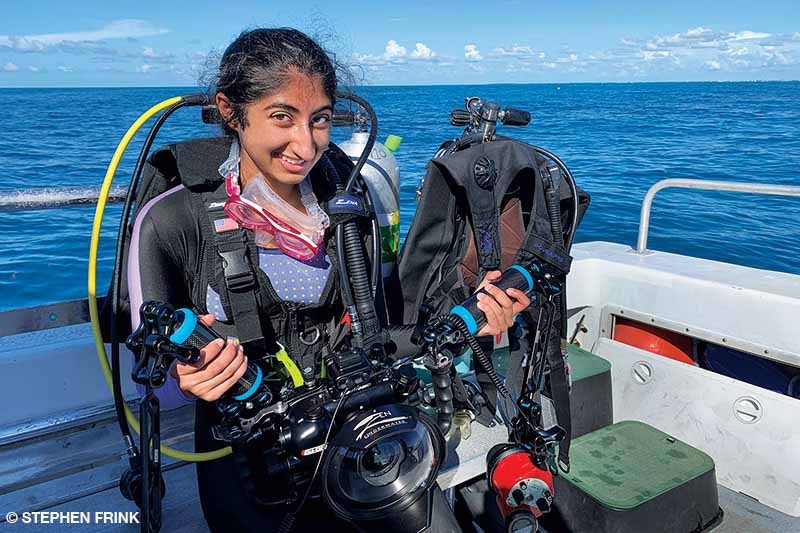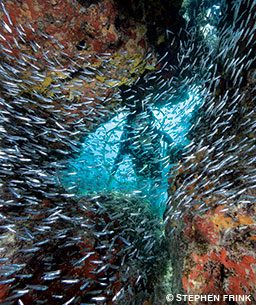When I was 10 years old, I fell in love with scuba diving and developed a fervor for exploring the underwater world while on a 2014 vacation to the Cayman Islands.
A few years later, thrilling dives captivated me. The turbulent Caribbean Sea swirled in disarray at the surface, but with one great stride I disappeared into the calm below. My bubbles traced the shelf of orange sponges as the current whisked me through the intimidating topography. The fan corals waved in slow motion as if time had no governance. Angelfish grazed my cheek as butterflyfish swirled through my legs in a utopian ensemble of underwater life, embracing me as if I were their own.

At age 15 I earned my Master Scuba Diver certification. The experience was humbling: undergoing intense rescue-diving training in the Florida heat, performing long underwater photography dives and monitoring my buoyancy through it all. It was one of the most challenging experiences of my life, but I enjoyed every moment.

In the six years I have been diving, I have unfortunately seen a notable difference in coral reef vitality. Coral skeletons on the powdery sand of the seafloor haunt the living coral with their cautionary tale. Numerous factors contribute to coral bleaching, but we know it is an extension of our changing climate. The steps we take to protect the reefs, one of the most visible ocean health indicators, have broader benefits beyond just the coral. Through our conscious efforts to protect our oceans, we can hopefully pave a path to environmental recovery.
We all live with the damage that has already occurred. I am part of a generation that will have to contend with the outcomes of the mistakes we continue to make and will face a future of breathing air and swimming in oceans afflicted by our carelessness. We can use social media to encourage action and ensure that the public remains aware of the consequences of climate change. The reality of the damage we are causing becomes palpable through images on Facebook and infographics on Instagram. Generation Z has been using different platforms to educate the public and provide petitions, donation links and calls to action. While social media can be a catalyst for change, we must work on codifying this envisioned change.
We cannot just repost scientific articles and watch videos of our current condition without taking concrete steps to remedy it. Write letters to government officials and your elected representatives. Create donation funds for nonprofit organizations that combat climate change, such as the Coral Restoration Foundation and Mission Blue. Volunteer with organizations for ocean clean-up and coral outplanting projects. Vote in elections for candidates who will prioritize policies to address climate change.
The ocean floor’s mass graveyard — a myriad of decomposing calcium backbones and forgotten plastics — might be the new reality in the next decade if we do not act with all the resources at our disposal. It would be a shame if we later look back and remember sitting as spectators to our own catastrophe.
© Alert Diver — Q1 2021